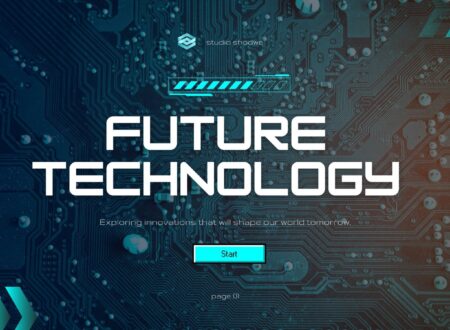Introduction: The rapid advancement of technology
The world as we know it is changing at breakneck speed. Technology has woven itself into the very fabric of our daily lives, creating new paradigms for work and play. Gone are the days when a 9-to-5 job defined career success or weekends were solely reserved for outdoor adventures without a digital device in sight. Today, telecommuting offers flexibility, automation reshapes entire industries, and freelancing presents opportunities previously unimaginable.
As technology continues to evolve, so do our routines and leisure activities. The rise of social media influences how we unwind and connect with others during downtime. From virtual hangouts to gaming marathons, the way we engage in fun is shifting dramatically.
This digital revolution brings both excitement and challenges. While innovation opens doors to creativity and efficiency, there are downsides that require careful consideration. Adapting to this brave new world isn’t just an option; it’s essential for thriving in both professional endeavors and personal enjoyment. Let’s delve deeper into how technology is redefining not just what we do but also who we are in the process.
Telecommuting and remote work options
Telecommuting has transformed the traditional workplace. Employees can now perform tasks from anywhere, freeing them from lengthy commutes and rigid schedules. The flexibility allows for a better work-life balance.
With tools like video conferencing and project management software, collaboration remains seamless, regardless of location. Teams can connect in real-time or asynchronously, making it easier to accommodate different time zones and lifestyles.
Remote work options have also expanded job opportunities. Talent isn’t limited by geography; companies can hire skilled professionals from around the globe. This diversity fosters innovation and brings fresh perspectives into projects.
However, telecommuting isn’t without its challenges. Maintaining productivity while working from home requires discipline. Isolation can creep in as well since social interactions are often reduced compared to an office environment.
Technological advancements continue to enhance remote work experiences, providing solutions that address these concerns while promoting engagement and teamwork across distances.
Automation and its impact on jobs
Automation is transforming the job landscape at a dizzying pace. With machines and algorithms taking on tasks previously handled by humans, industries are experiencing both upheaval and opportunity.
On one hand, many roles are being diminished or even eliminated. Routine jobs in manufacturing, data entry, and customer service face significant risks as automation technologies advance. Workers may find their skills outdated overnight.
Yet there’s another side to this coin. Automation can create new jobs that require more advanced technical skills. Roles in AI maintenance, robotics programming, and data analysis are on the rise as companies look for individuals who can navigate this digital frontier.
Workers need to adapt quickly to stay relevant in an evolving marketplace. Upskilling and continuous learning become essential strategies for those looking to thrive amidst these changes. The future will belong to those willing to embrace innovation rather than resist it.
Freelancing and the gig economy
Freelancing has surged in popularity, reshaping the traditional job market. Individuals are opting for flexibility over stability, seeking opportunities where they can set their own schedules and choose projects that resonate with them.
The gig economy thrives on platforms connecting freelancers with clients. These digital marketplaces eliminate geographical barriers, allowing talents from across the globe to collaborate seamlessly.
As more people embrace this lifestyle, industries adapt too. Companies leverage freelance talent to scale quickly without the overhead of full-time employees. This shift fosters innovation and diversity in problem-solving.
However, freelancing isn’t without challenges. The lack of consistent income and benefits can create uncertainty for many workers navigating this new landscape. Balancing multiple gigs demands strong time management skills and self-discipline.
Despite these hurdles, the allure of autonomy continues to draw individuals into freelancing—an exciting frontier within today’s workforce ecosystem.
Play in the Digital Age:
The digital age has transformed how we unwind. Gone are the days when leisure meant flipping through a magazine or playing board games. Today, our screens are portals to endless entertainment.
Video games have surged in popularity, offering immersive experiences that connect players worldwide. Whether it’s battling foes or collaborating on quests, these virtual worlds provide excitement and community.
Social media has also changed leisure activities significantly. Platforms like Instagram and TikTok inspire new hobbies and trends at lightning speed. From viral dance challenges to DIY crafts, creativity thrives online.
Streaming services redefine how we consume content too. Binge-watching shows becomes a social event as friends gather virtually to share laughs and tears over shared stories.
Amidst all this innovation, finding balance is essential. Digital play can be exhilarating yet overwhelming if not approached mindfully. Prioritizing real-life connections remains vital for holistic well-being.
Influence of social media on leisure activities
Social media has transformed how we spend our free time. Platforms like Instagram and TikTok showcase endless possibilities for entertainment, from viral dance challenges to cooking tutorials.
Scrolling through feeds often sparks inspiration for new hobbies. People are trying their hands at photography, crafting, or gardening after seeing stunning posts shared by others.
Moreover, social connections have shifted. Hanging out with friends now frequently means engaging in virtual game nights or sharing content online rather than meeting up physically.
The pressure to curate a perfect online presence can also affect leisure choices. Many feel compelled to participate in trending activities simply for the likes and shares they bring.
While this digital landscape offers exciting opportunities to connect and explore interests, it sometimes blurs the lines between genuine enjoyment and performance-driven experiences. It’s essential to find balance amid the noise of social media’s influence on downtime.
The Pros and Cons of the Digital Revolution:
The digital revolution has transformed the way we live and work. On one hand, it offers unparalleled convenience. Tasks that once took hours can now be completed in minutes with just a few clicks.
Communication is faster than ever. Friends and colleagues are only a message away, regardless of distance. This instant connectivity fosters collaboration across borders.
However, there’s a flip side to this progress. With automation on the rise, job security can feel fragile. Many traditional roles are vanishing as machines take over repetitive tasks.
Mental health is another concern amid constant online engagement. The pressure to stay connected can lead to burnout or anxiety for some individuals seeking balance in their lives.
As technology evolves, so do our social interactions and leisure activities. While digital platforms unite people globally, they also risk creating isolation among those who lose touch with face-to-face connections.
Adapting to the Digital Revolution
The digital revolution is not just about technology; it’s a fundamental shift in how we live and work. Adapting to this change requires flexibility and willingness to learn. Embracing new tools and platforms can open doors to opportunities that didn’t exist before.
For professionals, upskilling has become essential. Online courses make it easier than ever to gain knowledge in various fields, from coding to marketing strategies. Staying relevant means continuously evolving with industry trends.
On the personal front, creating boundaries around tech use can enhance well-being. It’s easy to get lost in screens when leisure activities now often involve social media or video games. Finding balance between online engagement and offline experiences is crucial for mental health.
Communities are also transforming due to these rapid advancements. Local events may integrate virtual components, allowing broader participation beyond geographical limitations.
As we navigate this era of swift technological progress, embracing change while maintaining our core values will lead us into an exciting future filled with endless possibilities.





